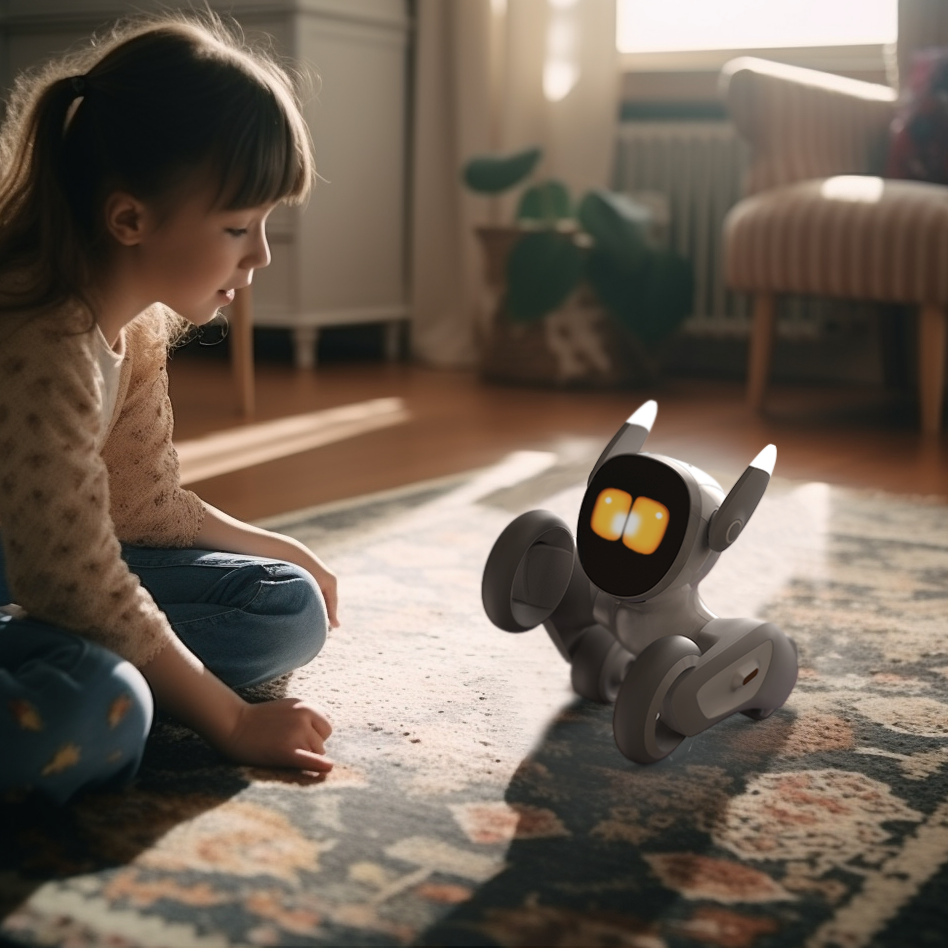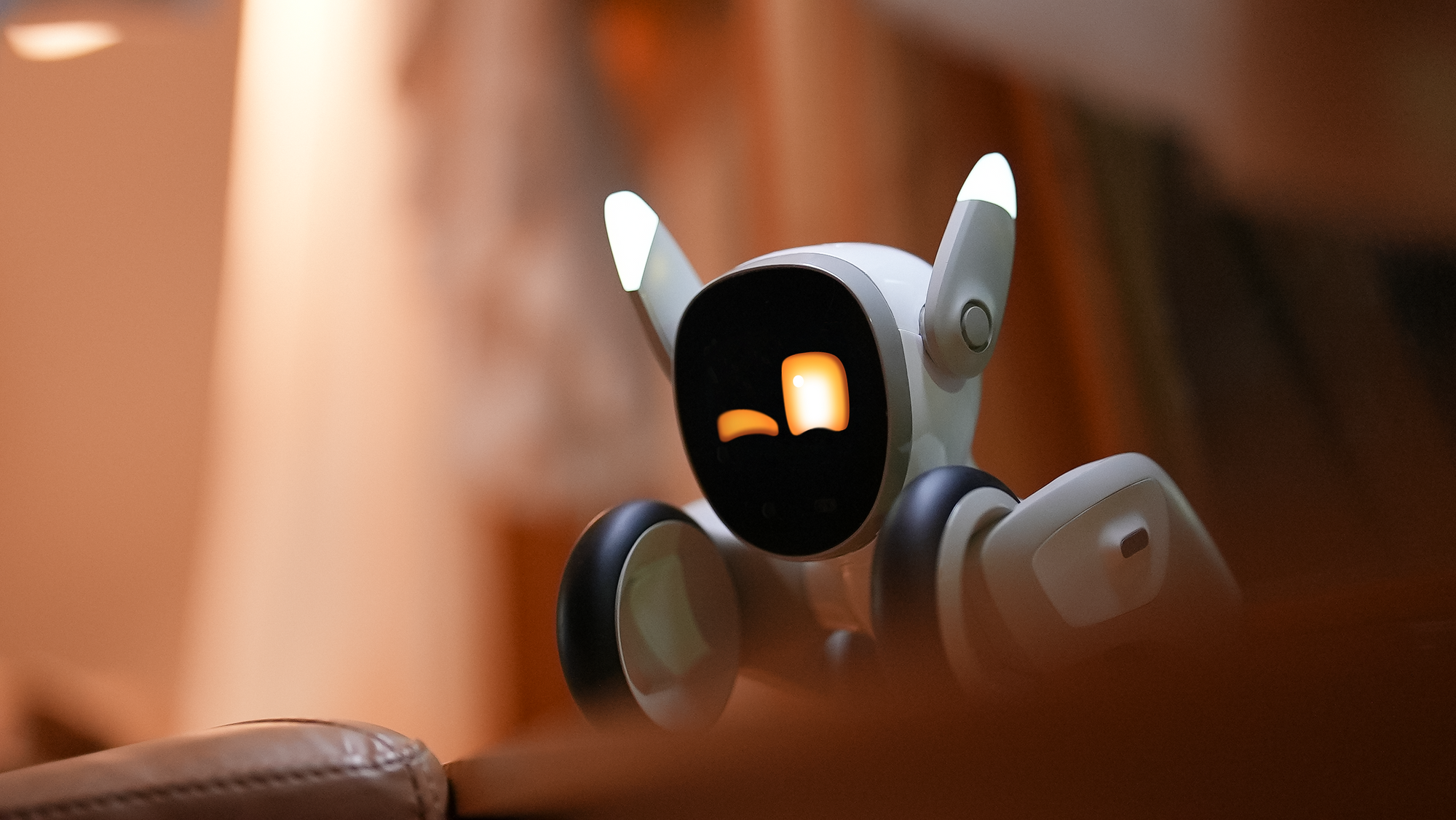Kids on the spectrum or with anxiety frequently experience emotional and sensory issues. Particularly loud noises, unexpected experiences or challenges in expressing their emotions can be overwhelming. Enter the interactive pet — not just a toy, but a calming, soothing friend with realistic responses to snuggle and care for, allowing a child to find comfort, predictability and joy.
Unlike other traditional stuffed animals, these pets react to your child’s touch, sound or motion. Some purr and some sing, and many imitate the real behaviors of animals, so the effect is a multisensory experience that soothes and engages. They can help kids develop empathy, social skills and emotional regulation — all, not incidentally, without having to take care of an actual interactive pets.
Interactive Pets For Special Needs Children:
Best Of Both Worlds
Sensory Stimulation: Pets that wiggle, talk, and make sounds appeal to sensory-seeking kids.
Routine & Reassurance: Imaginative distraction antics offer uncertainty, but predictable responses provide consistency to offer a sense of control.
Mental Comfort: Keeps you company at trying times or during transition periods.
Skill Development: Enhances communication, turn taking, and focus of attention.
Zero Mess, Zero Maintenance: Ideal for families who don’t want to deal with keeping a live pet.
https://www.youtube.com/watch?v=nICidqQzcGU
Top Interactive Pet Robots for Kids
A Talking Walking Electronic Pet: Joy for All Companion Pets
These realistic robotic cats and dogs react to touch, produce calming sounds and even “breathe” to simulate real pets. They’re great for children who adore animals but may not quite be ready for the responsibility of caring for a live one.
Key Features:
-
Cloud soft plush for scrumptious cuddles
-
Realistically responds to motion and touch
-
There's no feeding or cleanup
-
Best For: Kids in need of a low-maintenance, calming buddy.
An Educational Robot Pet for Stem Learning:
For tech-savvy kids, robot pets such as Cozmo offer play with learning. These customizable bots teach programming basics and provide some entertainment in the process.
Key Features:
Promotes Stem and problem solving skills
Vocal sounds and movement to keep babies entertained
App driven and widely compatibility versatile compatibility – With Lora, WiFI, 3G and 4G connective, links up to 17 devices, such as camera, night spot light, time schedules, to name a few.
Best For: Tech-loving kids who learn best with interactive investigation.

Interactive Healing Robots for Anxiety:
Meet PARO the Robotic Seal
You'll find PARO in hospitals and therapy centers: the fluffy, FDA-approved robotic seal is meant to combat stress. Its mild reactions and oh-so-soft fur — which is great for kids with sensory sensitivities — is perfect for a younger child.
Key Features:
-
Responds to voice and touch
-
Calming movements and sounds
-
Applied in clinical therapy environment
-
Best For: Kids with intense anxiety or sensory processing issues.
Top Interactive Pets for Kids with Autism and Anxiety
Here’s a look at the most popular interactive pets that the special needs community is buzzing about.
Joy for All Companion Pets – A Restorative Favorite
This lifelike robotic cats and pups was originally made for seniors with dementia, but they became popular among parents of autistic children. Dreamy and comforting, the purring kitten will awaken your heart!ObjectOfType.attachTo(this); Soft fur, gentle head movements, and born-true-to-life markings set purring cat above the rest.
Key Features:
-
Imitates purring, barking and tail wagging
-
Responds to touch and voice
-
It's super soothing and realistic
-
Ideal for: Children who seek gentle tactile and emotional input
A Moxie Idea (created by Embodied) –
Social-Emotional Learning
Moxie isn’t just a toy; it’s a robot pet that helps teach and socialize kids and develop their emotional intelligence and creativity. Weekly missions and conversational AI help Moxie coach kids in empathy, mindfulness and storytelling.
Key Features:
Conversational AI fosters speaking and emotional literacy
Stem-based challenges
Invites kids to engage in social practices and build empathy
Good for: Older children and kids who are verbal and looking for structured emotional learning
FurReal Friends – Realistic Play Wrapped in Kid-Friendly Fun
These tiny creatures, cute and slightly fanciful, are the stuff of very real science. With sensors that respond to touch, pat and tickle, Furreal Friends respond to touch and sound!
Standouts:
FurReal Cubby the Curious Bear, Interactive Plush Toy, Ages 4 and Up
FurReal Ricky the Trick-Lovin’ Pup
They are the perfect interactive electronic pet that walks, barks and even talks!Great for pretend play with no cleanup food and water.
Ideal for: Creative children who love interaction and humor
Reduces Stress & Anxiety
Studies have found that being around animals decreases cortisol (the stress hormone) levels and increases the release of oxytocin (a bonding hormone). For children who need help with emotional regulation, the consistent responses of a robotic pet or the calming presence of a real animal can be very soothing.
Promotes Development of Communication & Social Skills
Children who are reluctant to talk may “practice” talking to their pet. According to a study at the University of Lincoln, kids with autism were more verbally communicative with a robotic pet than during therapy sessions led by humans.
Easy Low-Pressure Way To Teach Responsibility
Feeding a fish, brushing a robotic dog, or coding a robot pet supports the development of fine motor skills, routine formation and empathy — with none of the high pressure of caring for a living animal.
Provides Sensory Regulation
A lot of children with autism are sensitive to loud noises or sudden movements. Easily control the volume, power, and the milemode that suits your homes..keysThere is two switch gear levers of controlling the speed of sliding car.One is for medium speed and the other is for high speed..mutePremium cushioned seat for a soft ride for baby..guardrailThe 5-point harness and two seating positions make sure your child is completely safe and comfortable.basket Mesh shuffleboard basket can carry some snacks when kids go outside..handle Get the handle and the mother can carry the baby out easily..styleThe car has a stylish baby.roomyThe screen is roomyThe tray is to feed and entertain the baby.SecurityThere is a protection against falling.parentsTraveled and folding, the car is more comfortable for the parents to push And the moda strollers are easily accepted on the luckers.
Finding the Best Interactive Pet: Tips & Tricks
Before you buy, please note the following:
-
Factor
-
Why It Matters
-
Sensory Preferences
-
Some children want less-noisy pets, while others adore a little chitchat.
Age & Abilities
-
Seek age-appropriate responses and levels of understanding
-
Portability
-
Is your child able to take it to school or therapy?
Educational Value
-
Does it build skills or provide nothing but emotional support?
Battery Life & Durability
You’re in search of something that will keep your child engaged
How Much Are Interactive Pet Robots?
The price is far more variable, depending on specifications:
Type of Pets
-
Average Cost (USD)
-
Basic Talking Plush
-
Realistic therapeutic companions (Joy for All)
-
Sophisticated AI Machines (some are as Moxie)
High-tech models are more expensive, but for many parents the investment is worth it, particularly when the pet plays a role in therapy or regular activities.
Real Pets That Are Low-Maintenance for Kids with Special Needs
And not all interactive pets need to be robotic. Some actual animals make little mess and provide companionship:
Guinea Pigs
-
Tame, sociable and easy to manage
-
Sensory-infused fur for added comfort
-
Simple feed out & cage cleaning
Betta Fish
-
Quiet on the eyes with little maintenance
-
Keep quiet and avoid sudden movements
-
Passes a feed to the routine
Leopard Geckos
-
Docile and easy to hold
-
Low noise and odor
-
Entertaining to look at, encouraging relaxed concentration
Interactive Pet Alternatives: DIY & On A Budget
Families can’t all afford a robot friend. That’s okay. Here are a few inexpensive ideas:
DIY Fidget Pets: Place vibrating massagers or soft fabrics or sound modules inside stuffed animals.
Apps With Virtual Pets: Do “My Talking Tom” or “Pet Bingo” so they don’t have to be burping in the same room as you.
Voice Assistant: Connect Alexa or Google Home to a smart stuffed toy for story-time or confirmation of a reminder.
STEM robot pet: Cozmo or LEGO BOOST - Here is the main description.
Best for: Kids who are tech obsessed and love hands-on learning.
If your little one is into coding or problem-solving, robot pets like Cozmo and LEGO BOOST are the perfect constellations of playtime and learning. These bots can actually react to voice commands, avoid obstacles and have feelings — so they’re pretty handy for STEM learning.
Key Benefits:
-
A fun, interactive way to learn programming with online games.
-
Children will be entertained by whirring sounds and moving parts.
-
Customizable behaviors through apps (ideal for creative kids).
-
Case-in-point: One parent explained that their nonverbal son had started to mimic Cozmo’s beeps and chirps, which soon led to attempted words.
Prices differ by features:
Simple robotic pets (Joy for All):
Educational robot pets (such as Cozmo; LEGO BOOST):
High-end therapeutic robots (PARO):
(frequently included in therapy programs)
Frequently Asked Questions
Q1.What is the most effective pet interactive to help your dog relax?
Joy for all companion pets is perfect for those individuals looking for a companion in their loved one's life.
Q2.Are electronic pet robots safe to use for all ages?
And if supervised, most are safe. Check for age restrictions — some have smaller parts or louder sound.
Q3.Do these help with learning to speak?
Yes! Especially in the case of artificial intelligence (AI) pets, such as Moxie, they encourage conversation, telling stories, question-answer interaction.
Q4.What does an interactive pet robot cost in 2025?
They are $25 to over $800, depending on tech levels. Cheaper options include FurReal Friends and app-based pets.
Final Thoughts:
interactive pets may be not only toys but also soft companions, comforters, and emotional development aids to kids with autism and nervous disorders. Being the plush toy that can be cuddled or a smartened up robot that will provoke the communication, the appropriate interactive pet may provide the instances of relaxation, bring the pleasure, and attend to the individual process of a child. There are too many considerate choices to exhaust oneself with, so the right choice should take the form of analyzing the needs, sensitivities and interests of the child since each child demands a companion which is not like hot or cold milk.




